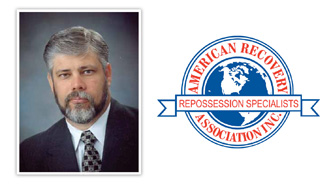Is There a Place for Forwarding in Repossessions?

By subscribing, you agree to receive communications from Auto Remarketing and our partners in accordance with our Privacy Policy. We may share your information with select partners and sponsors who may contact you about their products and services. You may unsubscribe at any time.
IRVING, Texas –
Forwarding, in itself, is not a bad business practice. Afterall, we have been forwarding work amongst ourselves for many years. Forwarding became a nasty word when the auction companies entered into the business to push repossessed vehicles to their respective auctions.
Sadly, that wasn’t enough for the auction companies, and forwarding started to become a profit center for them.
As price became the focus, instead of building success in the recovery process, these entities convinced lenders they could provide a fixed cost model and then used their leverage to push the price down to the recovery agencies. As a rule of thumb, when the profit is squeezed out at the bottom, results start to deteriorate. This is what’s been happening in the recovery business. Recovery agencies are bearing the brunt of the cost and are unable to derive enough income to make a profit in today’s business climate.
Capitalism is where your ability to earn and prosper is only limited by your own decisions. Given the opportunity to realize your potential is good for the soul and the pocketbook. The recovery industry is not a 9 to 5 business; it is not a business where a non-motivated individual will excel. The hours and creativity required to be successful will never be replaced, despite the efforts of a few.
Every recovery, whether it’s voluntary or involuntary, involves a living, breathing human being to make a decision. This requires a unique skill set not easily found in the help wanted section of the newspaper (and for the younger among you that don’t relate to that, Craigslist). The recovery process can never become a commodity.
The inefficiencies of the forwarding model are many, driven by the fact there is no communication between the end of the solution provider and the originator. There are documented cases where a question from the field takes days to get answered, and most of the time the answer does not address the original question or is inadequate to help the field agent. Software has helped the process some, but it still has not cured all of the problems.
Subscribe to Auto Remarketing to stay informed and stay ahead.
By subscribing, you agree to receive communications from Auto Remarketing and our partners in accordance with our Privacy Policy. We may share your information with select partners and sponsors who may contact you about their products and services. You may unsubscribe at any time.
Industry insiders, with the help of a world-renowned business school, developed a model that fixes most of these issues. But it has been very slow to be embraced by the lending community because it acknowledges the fact that one price does not fit all and to produce a higher recovery rate, an agent must be rewarded for the efforts necessary to perform the task. For the past 20 months, this business model has been proven successful.
The key to the best business practices in a capitalist enterprise is each party involved must derive a benefit (profit) from the transaction. I am not sure the key decision makers at the client level understand this. There is no way for one of the two sides of the equation to presume dominance over the other and both survive. It is absolutely imperative that both sides be profitable for this process to function correctly. They both must be concerned about the other’s success.
It is impossible to add a third party (that also needs to make a profit) to this equation without a more fair income distribution strategy.
In our industry, the forwarder offers no benefit to the agency; in fact, it adds an additional burden to them. The benefit (or perceived benefit) lies entirely with the client. However, the clients do not want to pay for this benefit — the recovery agent ends up paying for it by accepting substandard fees.
As a “free trader,” I understand a client and/or forwarder cannot force a recovery agency owner to agree to those terms and I do not understand why they do.
There are clients that are assigning accounts directly and are making an effort to make this industry work for all involved, and to those I say, thank you.
Les McCook is executive director of the American Recovery Association.
Editor’s Note: McCook addresses one side of the topic. For the other side, see the other column in today’s Repo & Recovery e-newsletter by Terry Groves, of Consolidated Asset Recovery Systems.


